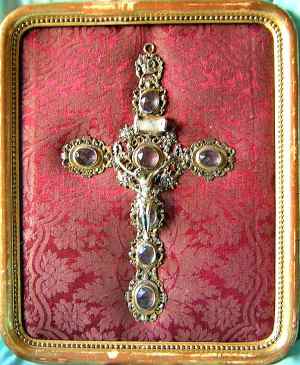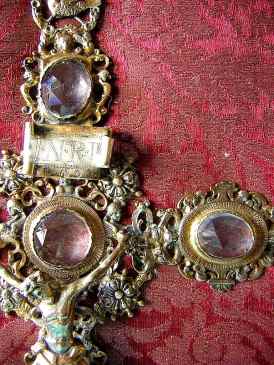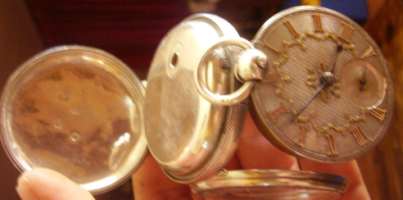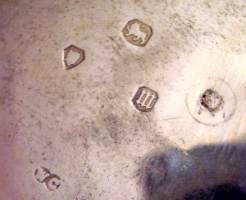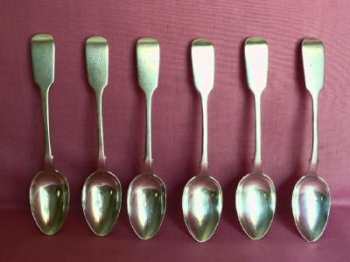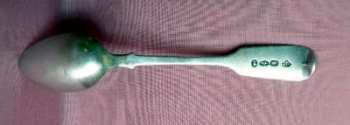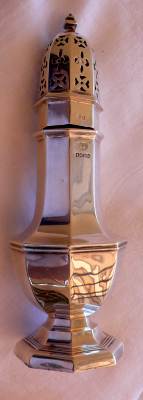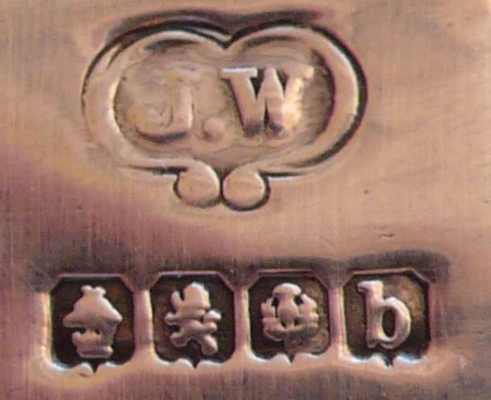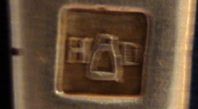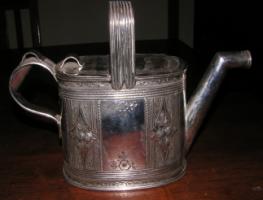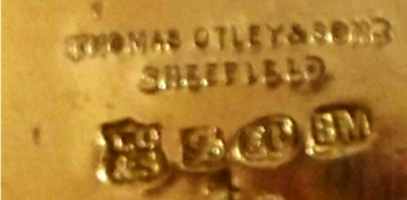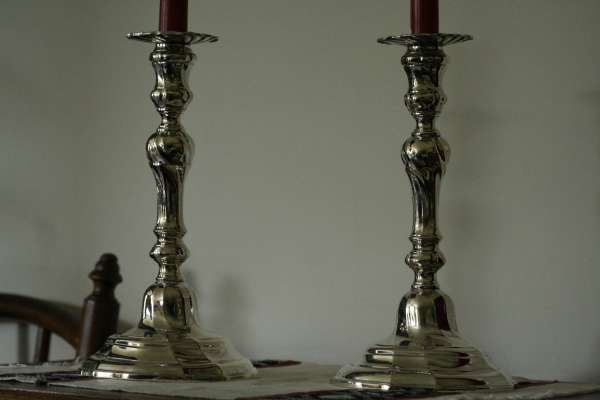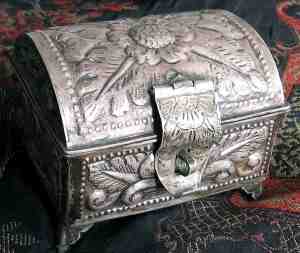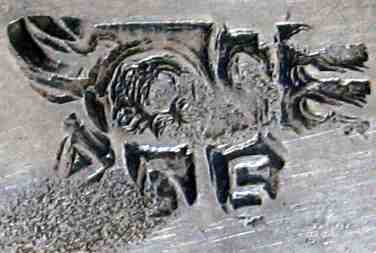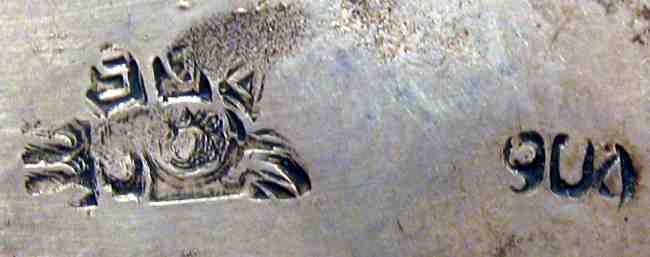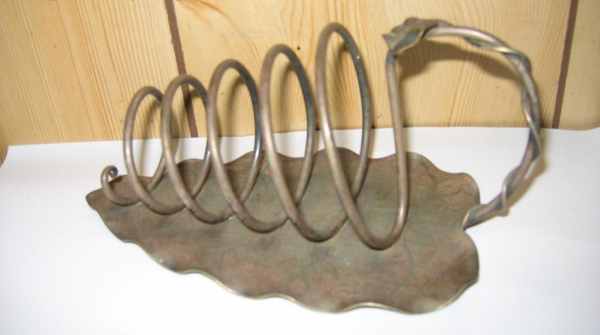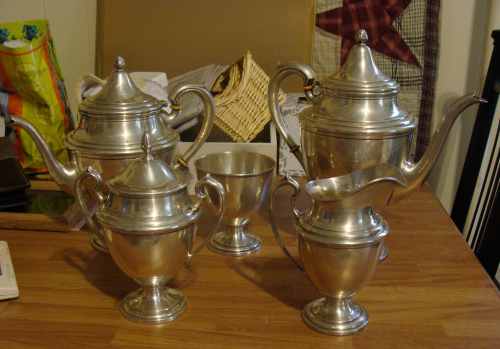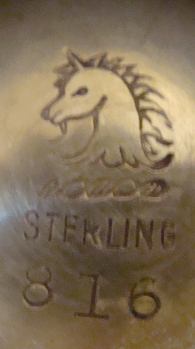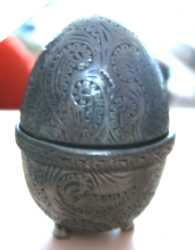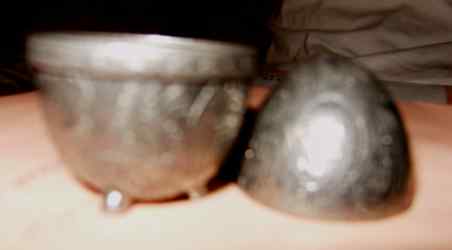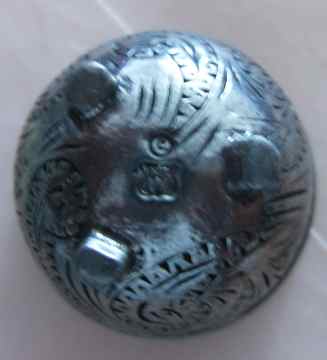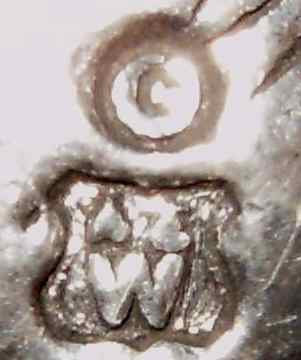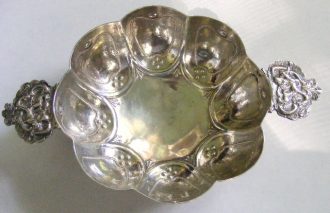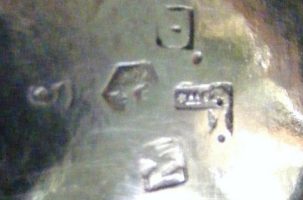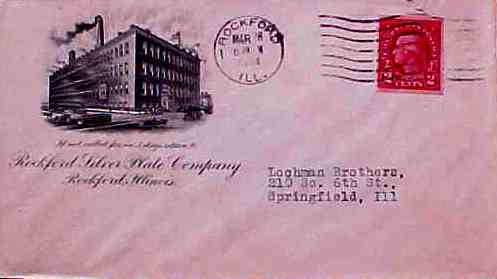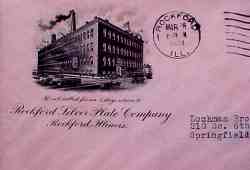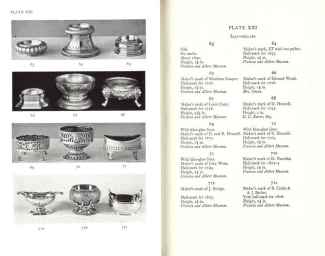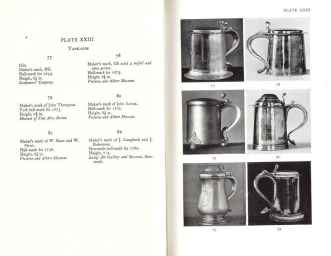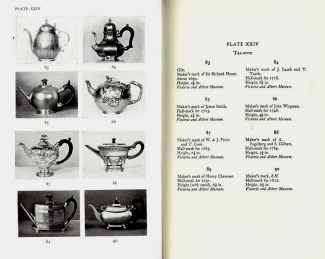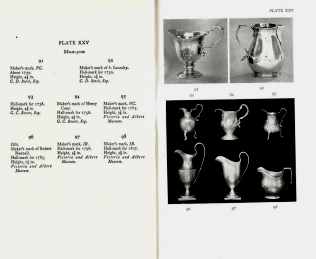 newsletter # 52 - SEPTEMBER 2008
newsletter # 52 - SEPTEMBER 2008www.ASCASonline.org
email: silverassociation@yahoo.it
YOUR GUIDE TO SEPTEMBER NEWSLETTER:
articles new members
members' window
|
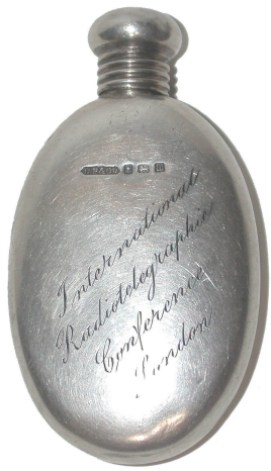 Fred
Sinfield presents 'A flacon and a lighter ' the
story of a perfume flacon presented to delegates
participating in 1912 in the Conference ratifying the
Convention Radiotelegraphique Internationale Fred
Sinfield presents 'A flacon and a lighter ' the
story of a perfume flacon presented to delegates
participating in 1912 in the Conference ratifying the
Convention Radiotelegraphique Internationaleclick here |
A new article for ASCAS website
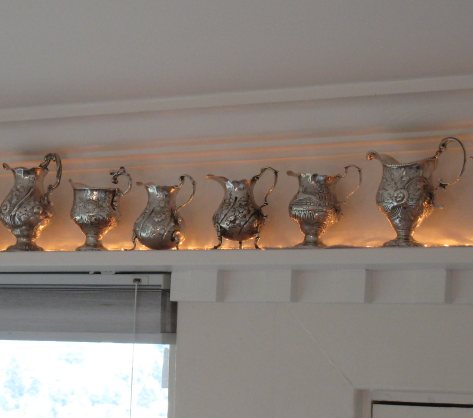
Richard Hyman presents: |
New members
Welcome to new ASCAS members:
Sara Dilewski - Germany
Joyce Geeser - USA
George Glastris - USA
Joan Ellis Kautz - USA
Deborah Lauritzen - USA
Bronwyn Mason - Australia
Chris Pontifex - Australia
Sue Tiffin - USA
Members' Window # 52
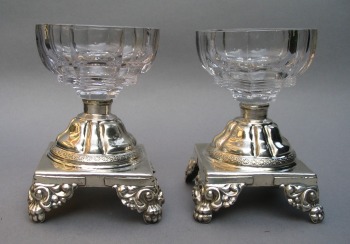
|
Mail to ASCAS: e-mail silverassociation@yahoo.it
Cristina Speluzzi writes:
... The cross I want to ask about is a family heirloom. I was
told it is German, from the 18th. century. I'm including
pictures, so someone could help me identify all the marks. It
measures 27 cm. x 12 cm, not that this information is relevant...
Thank you again for all you so generously do for us, dealers and
dilettantes.
Warm regards,
Cristina Speluzzi
These marks look to be German, but I don't know if they are
ancient marks (Nuremberg) or modern (end 19th century)
reproduction.
I trust on the help of ASCAS members for their identification.
Giorgio Busetto
Haroune Toumani writes:
... Do you can help me to date this watch?
Thank you in advance for your help.
Haroune Toumani
The mark is for London 1867. The maker is (possibly) William
Carter. William Carter was listed in 1852 as a watch case maker
at 7 President Street East, Goswell Road, Clerkenwell, EC. This
address was subsequently changed to 35 President Street, EC
where Carter was still listed in 1885. A William Carter,
possibly the same individual, is listed in 1841 as a watch case
maker at 22 Galway Street, Bath Street, St. Luke's.
Giorgio Busetto
Linda Dempsey writes:
... I am a new member, asking for help identifying these spoons...
They are old, as the monograms are almost worn off... They are
lightweight (4 total ounces for the set of six, on our postal
scale) and feel more like coin silver than sterling... They do
have the lion passant, which would indicate sterling, but also a
beaver mark, which seems a bit of a mystery....
Any help you could give, would be appreciated...
Linda Dempsey
The maker is J.E. Ellis & Co - Toronto, Ontario, Canada.
James E. Ellis moved from Liverpool, England, to Canada in 1848
and was associated with Rossin Bros until 1852. He bought the
business in that year and was joined by his son in 1862. The
firm changed its name to J.E. Ellis & Co in 1877 in partnership
with M.T. Cain.
The business continued until 1901.
Giorgio Busetto
Deborah Brierty writes:
... I have attached two photos of my teapot, handed down to me
by my grandmother.
I was wondering if you can tell me what the symbols on the
bottom mean, it has the words Thomas Otley & Sons, Sheffield
written on it.
Also do you know the value of the teapot, waiting to hear from
you,
Regards
Debbie
the maker is Thomas Otley & Sons, Meadow Works, 33 New
Meadow St., Sheffield, c.1890 - 1900.
Obviously this teapot is silver plate and not sterling silver.
Sorry, but ASCAS do not make appraisals. I suggest comparing
your teapot with the price paid for similar items sold on eBay
Giorgio Busetto
Michael Deshaies writes:
... I post pictures of an item that I have in which I know
nothing about. I do not recognize the hallmark as it is in bad
condition.
Here are some photos.
Thanks,
Mike
I believe that your casket was made in Continental Europe or
Middle East as it has 800 silver fineness mark but I'm unable to
identify its origin.
I hope that someone of our members will be able to help you.
Giorgio Busetto
Patrick writes:
... I was hoping someone could help me identify the Maker and
date of an item I have. I'm not sure what the item is but I
thought it might be a napkin holder. I have included photos of
item and marks.
Any help would be greatly appreciated.
Thanks
Patrick
The maker is Walker & Hall, Electro Works, 9-15 Howard
Street, Sheffield.
This mark was in use 1852-1897. I believe that your item is a
toast rack.
Further information (and a photo of your mark) is available in
my private website at
http://www.silvercollection.it/electroplatesilverWZ.html
Giorgio Busetto
Kirk Williams writes:
... Hello. Firstly, I'd like to thank you for your great website!
It has helped me in my identification of numerous pieces of
silver. I have recently obtained a coffee and tea set that I
have been unable to identify. I have included a few pictures, in
hopes that you may be able to help identify the maker.
Any help or information that you can provide would be greatly
appreciated!
Thanks!!!
Kirk Williams
I'm unable to identify the maker of your sterling silver
teaset. I trust in the help of ASCAS members
Giorgio Busetto
... I was looking in your listing of makers of British electroplated silver in order to identify the marks on a salt spoon.
Is it possible that the maker is John Gough of Birmingham?
Do you have an idea what the other marks mean? I know that EP means electro plated; but I have no idea of the other marks.
I hope that you can help me once more.
Thanks for your taking care of my questions.
Kind regards,
Robert
The maker is John Gilbert, Birmingham, about
1876/1894.
A1 was usually adopted to indicate higher quality plating (...but
I never saw an item marked A2).
I believe that the other marks had no particular meaning and
were added to obtain a set of three of four marks to imitate
sterling silver marking.
Any other suggestion will be highly appreciated.
Giorgio Busetto
Lisa Bennett writes:
...I am just wondering if you could help me out with a lovely
little silverware object I have.
I have looked up the marks and can't find any object of this
sort.
Could you please date and identify what it is made from as
unsure if it is silver or not. It has a black foam like cushion
in the bottom that is covered by a royal blue velvet on the top.
The measurements are as follows: width 3cm and height 5 cm
approximate.
I look forward to hearing from you soon
Kind regards
Lisa
I'm unable to identify the maker. Anyway your item is
silverplate and not sterling silver. I believe that this is a
thimble holder but any other suggestion about the maker and its
use will be welcome.
Giorgio Busetto
Replies to questions
| Josephine
Lewis receives another reply about her silver "quaich"
(see July Newsletter) Hymie Dinerstein writes: ... Regarding the quaich and other Hanau type pieces,
many of these pieces copy hallmarks from earlier Dutch
pieces and it is important to make sure the style of the
article is in the style of the period that its hallmark
represent. There is a Dutch book, that lists 615 FAKE
Dutch hallmarks and I would presume that there are now
many more now since this books was first published in
the 1950's when I bought the book.
|
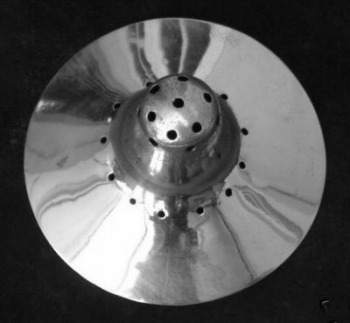
|
NIPPLE SHIELDThe nipple-shield is a small protective
object to be placed over a nursing woman's
nipple during infant feeding.
|
"A BOOK ON MY SHELF"
In this column we present
books, new or ancient, dealing with silver in all its
aspects (history, marks, oddities...). This isn't a
"book review" but only a fair presentation of some
useful "tools" that anyone may have in the shelf of his
bookcase.
ASCAS members are invited to contribute to this column
(click to enlarge images)
The "book on the shelf" of this month is presented by
Karin Sixl-Daniell:
ENGLISH DOMESTIC SILVER
by Charles Oman
Adam & Charles Black, London 1965 (first edition 1934)
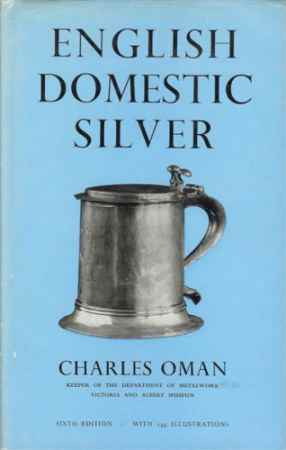 |
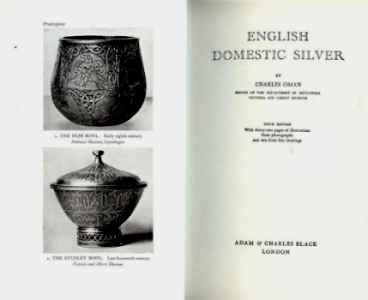 |
Closing our SEPTEMBER 2008 edition of ASCAS Newsletter I hope you have appreciated its content.
Your comments, suggestions and advice will be of great help.
My thanks to Lisa Bennett, Deborah Brierty, Linda Dempsey, Michael Deshaies, Hymie Dinerstein, Jayne Dye, Mario Galasso, Richard Hyman, Bernard Jouret, Ross Macrae, Robert Massart, Karin Sixl-Daniell, Cristina Speluzzi, Haroune Toumani, JoAnne Wilkinson, Kirk Williams for their invaluable contributions.
Giorgio Busetto
Secretary
ASCAS is a community of people having a
common interest in antique silver.
|

